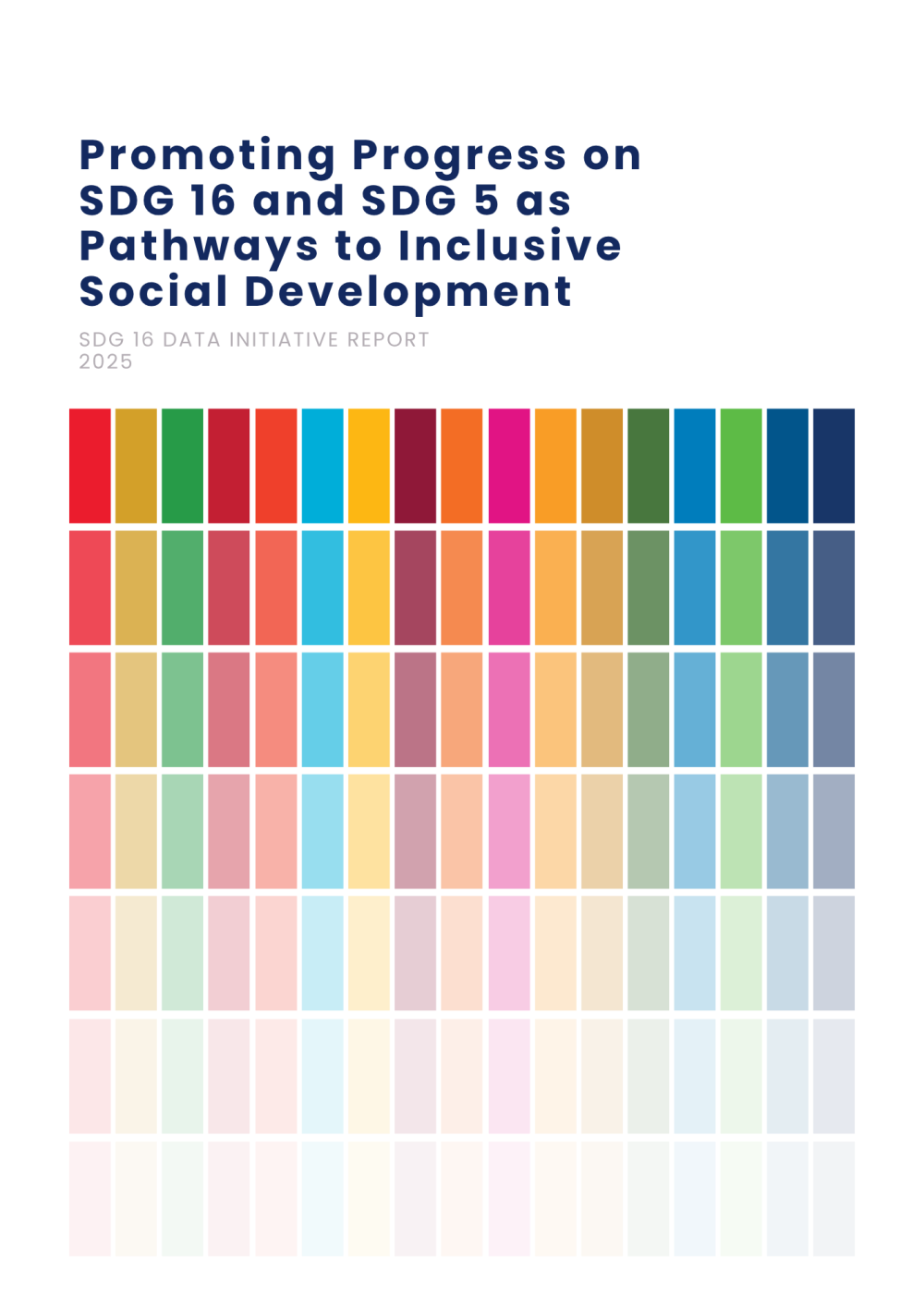SDG 16 Data Initiative Report 2025
This report was created by the SDG 16 Data Initiative, a consortium of 18 partner organizations seeking to promote SDG 16 through non-official data. The Initiative is coordinated by International IDEA.
In 1995 world leaders took a significant step towards advancing equality, social and economic development, and justice for all.
The Beijing Declaration and Platform for Action (United Nations 1996) and the Copenhagen Declaration on Social Development (United Nations 1995) established the moral and institutional pillars that later formed the basis of the Millenium Development Goals and the current 2030 Agenda for Sustainable Development and the Sustainable Development Goals (SDGs), adopted in 2015.
As the world approaches the final years of the SDGs, the commitments made 30 years ago remain central to the aspirations of today, including gender equality and women’s empowerment, democracy, transparent governance, social justice and peace—all indispensable for people-centred development and enshrined in SDG 5 and SDG 16.
The 1995 Beijing Declaration identified gender equality as both a human right and a necessary condition for sustainable development. It highlighted 12 key areas of concern, including violence against women, armed conflicts, women’s participation in decision making and the protection of women’s human rights—elements that now form the basis of SDG 5, which aims to achieve gender equality and empower all women and girls (UN DESA n.d.). Similarly, the Copenhagen Declaration acknowledged that social development depends on strong, democratic institutions and accountable governance. Its effort to promote the rule of law and advocate for societies that are stable, safe and just aligns with the core principles of SDG 16 on peace, justice and strong institutions. These two goals mirror the declarations’ shared message—that sustainable development requires societies that are both inclusive and just.
Yet, progress since 2015 has been uneven. Gender equality indicators have improved modestly—such as a small rise in women’s parliamentary representation globally from 23 per cent in 2015 to 27 per cent in 2025 (IPU n.d.)—but transformative change remains elusive: 102 countries have never had a woman serve as Head of State or Government, the gender pay gap remains significant, and protection from violence is still just a hope with 1 in 3 women experiencing physical or sexual violence within their lifetime (UN News 2024). Meanwhile, there has been alarming stagnation and even regression in many of the SDG 16 targets, with declines in rule of law, representative decisionmaking, institutional transparency and accountability, and fundamental freedoms (Silva-Leander and Sourek 2025). These trends threaten to erode the democratic, inclusive and social foundations envisioned in 1995 and reaffirmed in the 2030 Agenda.

